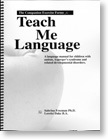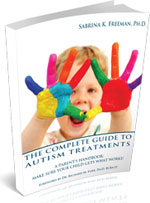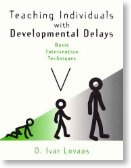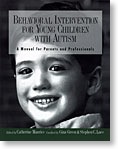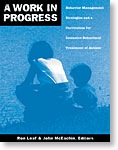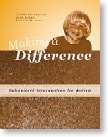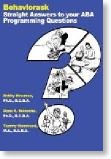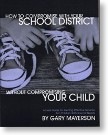discrimination
The British Commonwealth has something quite unsporting in common
19/06/12 12:31 Filed in: autism | Asperger's Syndrome

Back in March of this year, I wrote about the outrageous story of an American autism researcher who has been denied citizenship by Canada because he has a child with autism. At the time, I thought that this was a rare occurrence, that Canada somehow has a particularly pernicious, heartless immigration bureaucracy where autism is concerned. I was wrong.
Move over Canada. Make room for Australia!
The Threlfall Family
A policeman from the United Kingdom, Peter Threlfall, has accepted a position with a police force in South Australia. This is a tremendous opportunity for him and his family but the Australian immigration officials have put the kibosh on the immigration plans. Mr. Threfall’s family has been denied an immigration visa by Australian officials due to their child’s autism diagnosis. Here’s what the Australian bureaucracy has to say to justify their discriminatory ruling that rejects the family’s application:
“His daughter had not met the legislated health requirement, which was partly to restrict public expenditure on healthcare and community services.”
I notice a theme. Polities with government owned, socialized medicine seem to harbor systematic immigration discrimination against autism. I hope the trend of parliamentary democracies discriminating against high quality immigrants that happen to have a child afflicted with autism is not a bureaucratically contagious disorder. In the cause of proper stewardship of the public purse, we’re in fact witness to the height of immorality.
The Latest Academic Justification to Ration Treatment is a Doozy
06/06/12 20:41 Filed in: autism | Asperger's Syndrome
The latest article to come out about autism from California (Fountain et al, 2012) creates six developmental trajectories that characterize children with autism. Why should we care? It’s quite straightforward. The outcome of this research can be used to both justify providing treatment for children with autism and also the rationing of treatment for those children with autism who have an “intellectual disability” and are therefore deemed unworthy of scarce resources.
Here’s the summary.
Fountain and colleagues followed almost seven thousand children diagnosed with autism born in California, from 1992 through to 2001. Then they created six “trajectories” in an effort to predict how well the children will progress based on various dimensions. Although this article is full of findings that may be disturbing to parents for a variety of reasons, in my view the most dangerous findings have to do with intellectual disability and where the mother was born! The researchers found that:
“Having an intellectual disability was strongly associated with LF (Low Functioning) trajectories, as was having a foreign-born mother. Finally, children of white mothers were less likely to be LF than bloomers, as were children of Hispanic mothers (relative to nonwhites).” p. e1117
Allow me to translate: if your child at diagnosis is given an IQ test and does not score in the normal range, and/or if you are a foreign born mother, watch out! Those rationing treatment may use this article to deny your child treatment. Immigrant parents need to be particularly vigilant!
Luckily, there is one finding that can be used to argue against those rationers: The Late Bloomer. In this article, they found one group of children who are late bloomers. These children,
“… most likely to “bloom” are those without intellectual disability and those with more educated, non- minority mothers. Although we are unable to identify the specific mechanisms through which socioeconomic status affects trajectory outcomes, the intervening variables likely include home and neighborhood environments, quality and intensity of treatment, quality of education, the efficacy with which parents are able to advocate for their children with institutions providing services, and many other factors in various permutations.” p. e1118
In other words, if the child’s IQ was typical at diagnosis, and parents were better advocates with money to purchase superior treatment services, their children improved significantly.
So what do we do about the IQ tests? My view is since IQ testing is so wildly inaccurate when it comes to young children with autism, it seems criminal to seal their fate with a socially constructed test that has a decades-long history of being discriminatory in its impact.
What about minority or immigrant status of the parent? When it comes to the parent’s minority status, that’s when the discrimination becomes explicit. In short, if you smell discrimination, let this article alert you to protect yourself and your child! If you are in a minority, make sure that you find an advocate to write letters for you and attend meetings with you about your child. Keep this article in your back pocket if you suspect that your minority status is influencing the treatment or placement services of your child. When you demand equal treatment for your child, the system will be more likely to listen to you if you have evidence from a peer-reviewed journal that discrimination against children like yours has been going on for decades.
Here’s the summary.
Fountain and colleagues followed almost seven thousand children diagnosed with autism born in California, from 1992 through to 2001. Then they created six “trajectories” in an effort to predict how well the children will progress based on various dimensions. Although this article is full of findings that may be disturbing to parents for a variety of reasons, in my view the most dangerous findings have to do with intellectual disability and where the mother was born! The researchers found that:
“Having an intellectual disability was strongly associated with LF (Low Functioning) trajectories, as was having a foreign-born mother. Finally, children of white mothers were less likely to be LF than bloomers, as were children of Hispanic mothers (relative to nonwhites).” p. e1117
Allow me to translate: if your child at diagnosis is given an IQ test and does not score in the normal range, and/or if you are a foreign born mother, watch out! Those rationing treatment may use this article to deny your child treatment. Immigrant parents need to be particularly vigilant!
Luckily, there is one finding that can be used to argue against those rationers: The Late Bloomer. In this article, they found one group of children who are late bloomers. These children,
“… most likely to “bloom” are those without intellectual disability and those with more educated, non- minority mothers. Although we are unable to identify the specific mechanisms through which socioeconomic status affects trajectory outcomes, the intervening variables likely include home and neighborhood environments, quality and intensity of treatment, quality of education, the efficacy with which parents are able to advocate for their children with institutions providing services, and many other factors in various permutations.” p. e1118
In other words, if the child’s IQ was typical at diagnosis, and parents were better advocates with money to purchase superior treatment services, their children improved significantly.
So what do we do about the IQ tests? My view is since IQ testing is so wildly inaccurate when it comes to young children with autism, it seems criminal to seal their fate with a socially constructed test that has a decades-long history of being discriminatory in its impact.
What about minority or immigrant status of the parent? When it comes to the parent’s minority status, that’s when the discrimination becomes explicit. In short, if you smell discrimination, let this article alert you to protect yourself and your child! If you are in a minority, make sure that you find an advocate to write letters for you and attend meetings with you about your child. Keep this article in your back pocket if you suspect that your minority status is influencing the treatment or placement services of your child. When you demand equal treatment for your child, the system will be more likely to listen to you if you have evidence from a peer-reviewed journal that discrimination against children like yours has been going on for decades.
Canada needs YOU ... unless your kid has autism.
29/03/12 11:43 Filed in: autism | Asperger's Syndrome
The Canadian Government just announced that it is funding a Research Chair in Autism Spectrum Disorders! The news release indicates they are looking to attract autism research talent. The release states:
“Investigators working in Canada and those willing to relocate to a Canadian research institution are eligible for the Chair... The Chair’s application form is available on [Canadian Institutes of Health Research] CIHR’s website.”
Bright autism talent is being invited to Canada! That sounds great, until we learn that the immigration side of Canada’s vast bureaucracy excludes foreign researchers that happen to have a child with autism.
You hear that right.
The same week that the new autism research chair was announced by one hand of Canada’s government, the other hand invokes its policy of autism discrimination, wherein a professor of psychology is being denied Canadian citizenship because his child has a diagnosis of autism. The professor, Dr. Jeffrey Niehaus, now has no choice but to leave the University of Victoria, to return to the United States, and relocate to a university in Virginia.
The link below has the video news clip of outrageous Canadian immigration bigotry.
“Investigators working in Canada and those willing to relocate to a Canadian research institution are eligible for the Chair... The Chair’s application form is available on [Canadian Institutes of Health Research] CIHR’s website.”
Bright autism talent is being invited to Canada! That sounds great, until we learn that the immigration side of Canada’s vast bureaucracy excludes foreign researchers that happen to have a child with autism.
You hear that right.
The same week that the new autism research chair was announced by one hand of Canada’s government, the other hand invokes its policy of autism discrimination, wherein a professor of psychology is being denied Canadian citizenship because his child has a diagnosis of autism. The professor, Dr. Jeffrey Niehaus, now has no choice but to leave the University of Victoria, to return to the United States, and relocate to a university in Virginia.
The link below has the video news clip of outrageous Canadian immigration bigotry.
The irony of trumpeting a research position in autism that cannot be filled by a parent of a child with autism is not only bizarre, but also a profound affront to the basic decency of Canadians. Clearly, people with disabilities continue to be third class citizens in a country that prides itself on fairness and kindness.
Once again, hypocrisy, thy name is Canada.
How To Skate Around Discrimination
21/02/12 11:09 Filed in: autism | Asperger's Syndrome
I just read about the latest battles of a family that successfully integrated a child into skating lessons. This story transported me back in time to when I had to convince various teachers that having a child with a “helper” is the best way to successfully integrate my child into an activity.
I can’t believe that I’m still reading about the same issue twenty years later! In this article, the parents were savvy. They quickly went over the head of the luddite who has no concept of the term “accommodation” and called the media. In this case, the media did their job and put pressure on the mayor, who immediately realized that this flawed policy must be changed. Kudos to those smart parents who leveraged the media to change a policy that is going to help every child with special needs who follows. I’ve written in the past on how to address this problem in a non-confrontational manner; however, since this pattern keeps rhyming, it is worth revisiting the issue.
Based on the lessons learned from this news story, here are the following steps you may consider taking when you sniff a potential problem when integrating your child: first, approach the person in charge of registration and with a very energetic, positive demeanor say that you’d love to have your child learn how to skate (swim, dance or whatever); however, due to your child’s special needs, you have a shadow aide, or helper, to provide free of charge to the class to support your child. You may want to add that this person knows your child quite well and will only jump in when your child has a problem understanding the directions given by the instructor.
One of two things will happen: the manager will say yes, or no.
If you are given permission, congratulations! If the manager is amenable (and you feel comfortable), then you may add that it would be less stigmatizing for the child if the helper could wear a T-shirt with the name of the rink on it, and thereby keep the children and parents guessing regarding who this second adult is in class. Your child’s shadow will simply look like a regular volunteer, not necessarily there for your child.
If the manager declines, then it is time for step two: phone your local paper and set up an interview about how the publicly funded recreation center is discriminating against a disabled child. If the reporter is not seasoned enough to interview the mayor, you might want to suggest it. In addition, if you are lucky enough to live in a country with laws protecting your child, you may want to mention those laws to the reporter. If you want to make the rubble bounce, it may be useful to send the reporter a link to the website with those laws, and copy and paste the specific part of the law into the body of the e-mail. If you are not lucky enough to have those laws at your fingertips, another idea is to contact all the various disability groups and mention that it may be a good idea for them to contact the reporter and their politicians. The pressure put on these folks will generally be too much to handle and accommodations will be made.
Ironically, once you succeed in integrating your child and they realize that life as we know it did not end, the recreation center will celebrate its success in being so open-minded and progressive! Let them own your victory; that will help the next child in line, and that child’s parent who will have no clue that the reason it was so easy to include a shadow teacher is because of a bloody minded parent who preceded them.
Here’s to bloody-minded parents!
I can’t believe that I’m still reading about the same issue twenty years later! In this article, the parents were savvy. They quickly went over the head of the luddite who has no concept of the term “accommodation” and called the media. In this case, the media did their job and put pressure on the mayor, who immediately realized that this flawed policy must be changed. Kudos to those smart parents who leveraged the media to change a policy that is going to help every child with special needs who follows. I’ve written in the past on how to address this problem in a non-confrontational manner; however, since this pattern keeps rhyming, it is worth revisiting the issue.
Based on the lessons learned from this news story, here are the following steps you may consider taking when you sniff a potential problem when integrating your child: first, approach the person in charge of registration and with a very energetic, positive demeanor say that you’d love to have your child learn how to skate (swim, dance or whatever); however, due to your child’s special needs, you have a shadow aide, or helper, to provide free of charge to the class to support your child. You may want to add that this person knows your child quite well and will only jump in when your child has a problem understanding the directions given by the instructor.
One of two things will happen: the manager will say yes, or no.
If you are given permission, congratulations! If the manager is amenable (and you feel comfortable), then you may add that it would be less stigmatizing for the child if the helper could wear a T-shirt with the name of the rink on it, and thereby keep the children and parents guessing regarding who this second adult is in class. Your child’s shadow will simply look like a regular volunteer, not necessarily there for your child.
If the manager declines, then it is time for step two: phone your local paper and set up an interview about how the publicly funded recreation center is discriminating against a disabled child. If the reporter is not seasoned enough to interview the mayor, you might want to suggest it. In addition, if you are lucky enough to live in a country with laws protecting your child, you may want to mention those laws to the reporter. If you want to make the rubble bounce, it may be useful to send the reporter a link to the website with those laws, and copy and paste the specific part of the law into the body of the e-mail. If you are not lucky enough to have those laws at your fingertips, another idea is to contact all the various disability groups and mention that it may be a good idea for them to contact the reporter and their politicians. The pressure put on these folks will generally be too much to handle and accommodations will be made.
Ironically, once you succeed in integrating your child and they realize that life as we know it did not end, the recreation center will celebrate its success in being so open-minded and progressive! Let them own your victory; that will help the next child in line, and that child’s parent who will have no clue that the reason it was so easy to include a shadow teacher is because of a bloody minded parent who preceded them.
Here’s to bloody-minded parents!



